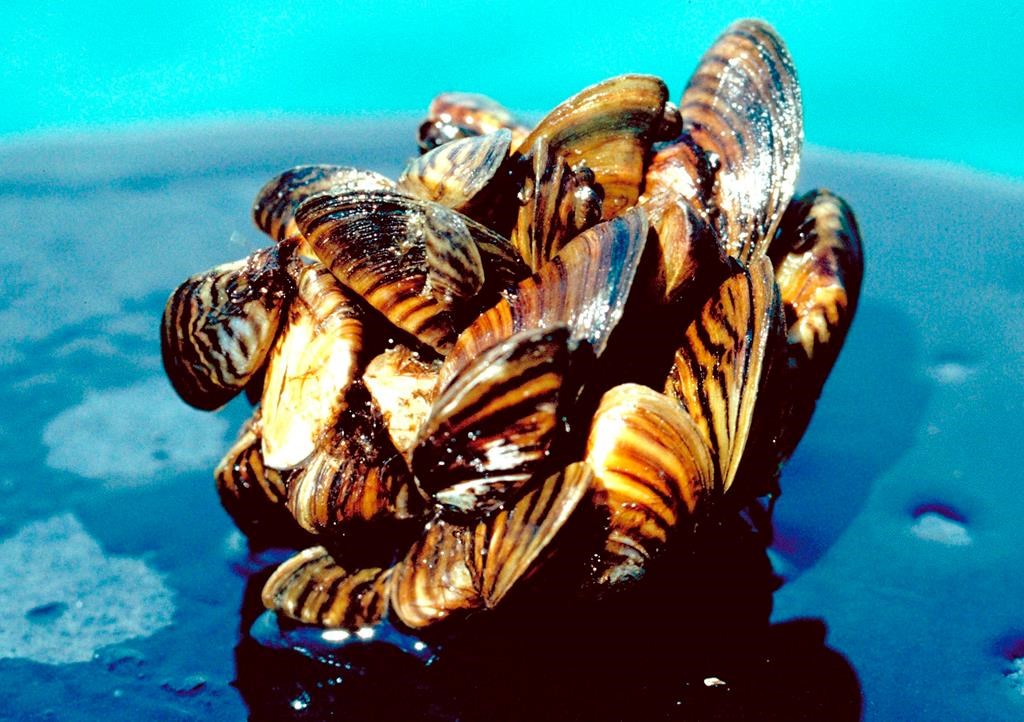
On this episode of What happened to…? Erica Vella revisits the aquatic invasive species, zebra mussels, that was introduced in the Great Lakes in the late 1980s and changed ecosystems where it became established.
Brook Schryer recalled his first interaction with zebra mussels in the early 1990s; he was living with his family on Lake Scugog in Ontario and one fall, Schryer and his brothers pulled the family boat out of the water.
“When we pulled the boat out of the water, we noticed that it was … probably double its normal weight because of just the sheer abundance of zebra mussels that had clung to the bottom of the boat,” he said.
“It was almost grotesque, to be honest.… You couldn’t even see the boat. Every surface of the boat that was underwater was covered in zebra mussels.”
Schryer and his brothers scraped the mussels off the boat but at just five years old, he didn’t understand just how big of a problem the pesky mollusks would become.
Zebra mussels are native to the Black and Caspian seas region in southeastern Europe and in the 1980s they established themselves in the Great Lakes through ballast water from ships.
“So zebra mussels are very small. The way they reproduce is that females release eggs, males release sperms in the water, they meet one another, and then they produce these tiny little larvae called villagers. They’re planktonic, we can barely see can we see them with the naked eye, and so these villagers can be floating in the water by the millions,” said Grégory Bulté, biology instructor at Carleton University.

“They’re filter feeders.… When you have huge densities of tens of thousands or sometimes hundreds of thousands of them per metre square, they can actually clean up the water column pretty quickly, which might seem like a good thing, but actually it can be a pretty dramatic change for our native species and ecosystems.”
According to the Department of Fisheries and Oceans Canada, as of 2020, the mussels have been found in Lake St. Clair, the Great Lakes, the St. Lawrence River, the Mississippi River watershed and most recently in Lake Winnipeg, the Red River and the Nelson River.
Zebra mussels have created huge changes in the ecosystems they have established in; they have also caused significant economic impacts. In the 1990s and early 2000s, attempts were made to prevent other invasive species from causing the same havoc.

Get breaking National news
On this episode of What happened to…? Erica Vella speaks with experts about the damage caused by zebra mussels and finds out what has been done to stop the spread of the invasive species and how can we prevent it from happening again.
Contact:
Email: erica.vella@globalnews.ca
If you enjoy What Happened To…? please take a minute to rate it on Apple Podcasts or Google Podcasts, tell us what you think and share the show with your friends.
If you haven’t subscribed yet — what are you waiting for?
Subscribing’s easy! Here’s how…

- Open the Apple Podcasts app, search for “What Happened To?” and select it from the list of results.
- Once on the What Happened To? page, click the “subscribe” button to have new episodes sent to your mobile device for free.
- Click the name of an episode from the list below to listen.

- Open the Spotify app, search for “What Happened To?” and select it from the list of results.
- Once on the What Happened To? page, click the “Follow” button to have new episodes sent to your mobile device for free.
- Click the name of an episode from the list below to listen.








Comments